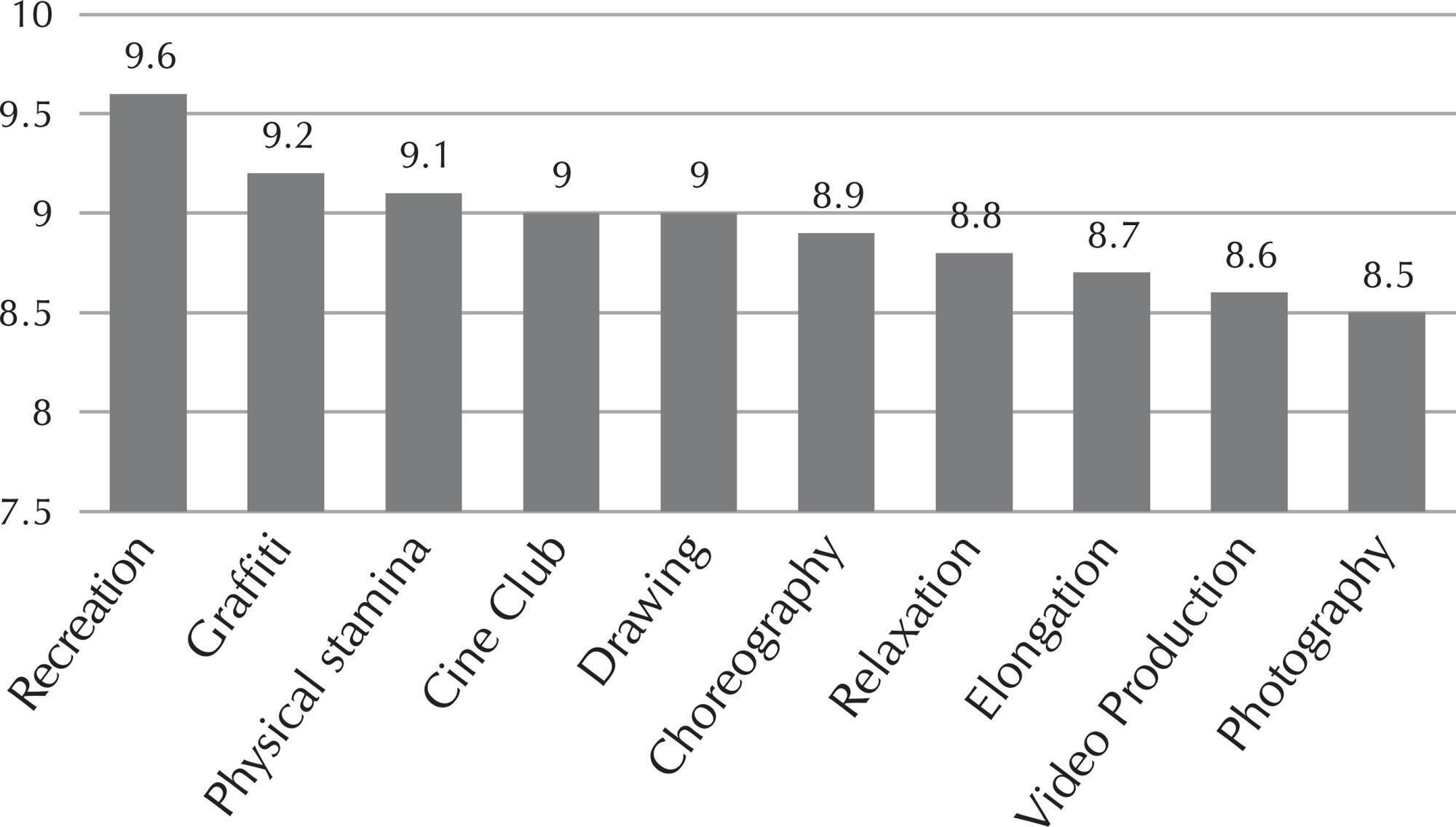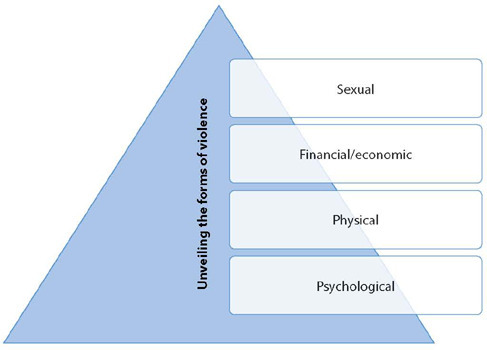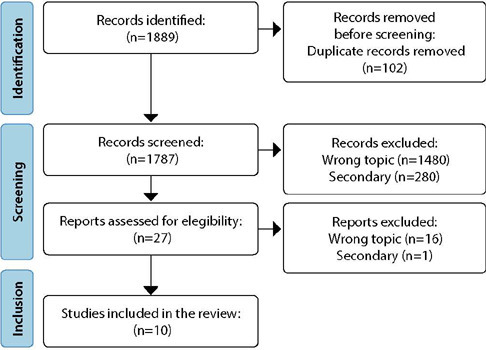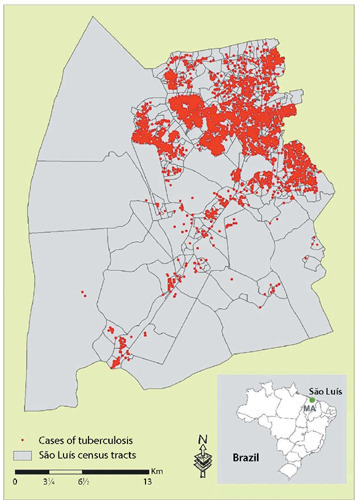-
RESEARCH01-01-2018
Validation of nursing diagnoses, interventions and outcomes in a pediatric clinic
Revista Brasileira de Enfermagem. 2018;71(1):80-88
Abstract
RESEARCHValidation of nursing diagnoses, interventions and outcomes in a pediatric clinic
Revista Brasileira de Enfermagem. 2018;71(1):80-88
DOI 10.1590/0034-7167-2016-0647
Views0See moreABSTRACT
Objectives:
To elaborate operational definitions for the Nomenclature nursing diagnoses, interventionsand outcomes of the Pediatric Clinic at a University Hospital and carry out a validation of the content and clinical aspects of this Nomenclature.
Method:
Methodological research, developed in two stages: documentary study, for the validation of content of the operational definitions of nursing diagnoses; and secondly applied research, via clinical cases, performed with children from 0 to 5 years.
Results:
The 126 diagnoses were submitted to consensus validation and 55.6% were validated. Six clinical case studies were carried out, using the phases of the nursing process, based on the theory of Basic Human Needs, identifying 24.3% of the validated diagnoses and 54.5% of the nursing interventions listed in the Nomenclature.
Conclusion:
The study showed the effectiveness of using the Nomenclature in the Pediatric Clinic, in order to optimize the care andquality of health services.
-
RESEARCH01-01-2018
Cognitive changes in nurses working in intensive care units
Revista Brasileira de Enfermagem. 2018;71(1):73-79
Abstract
RESEARCHCognitive changes in nurses working in intensive care units
Revista Brasileira de Enfermagem. 2018;71(1):73-79
DOI 10.1590/0034-7167-2016-0513
Views0See moreABSTRACT
Objective:
To measure the levels of stress, anxiety, and depression of nurses working in ICUs, relating them to levels of attention before and after 24 hours.
Method:
An observational, quantitative, analytical study with 18 nurses undergoing an inventory of stress, anxiety, and depression, as well as assessment of attention levels and psychomotor functioning.
Results:
Sixty-one percent showed positive for stress. Depression was observed in 33%; and anxiety in 99.9%. A strong correlation between stress and depression (ρ = 0.564 with p <0.05) and anxiety (ρ = 1 with p <0.05) was observed. There was a weak correlation between stress and task execution time in M2 (ρ = 0.055) for TMT A, a fact that did not occur in M0 (ρ = -0.249).
Conclusion:
The study shows that the workload of the nurses working in 24-hour shifts in the ICU is correlated with high levels of stress, decreases in the attention process, and psychomotor decline.
-
RESEARCH01-01-2018
Realities and perspectives of adolescent mothers in their first pregnancy
Revista Brasileira de Enfermagem. 2018;71(1):65-72
Abstract
RESEARCHRealities and perspectives of adolescent mothers in their first pregnancy
Revista Brasileira de Enfermagem. 2018;71(1):65-72
DOI 10.1590/0034-7167-2016-0444
Views0See moreABSTRACT
Objective:
to understand the trajectory of adolescents regarding the first pregnancy, contemplating realities and perspectives.
Method:
qualitative study, based on the Schütz theoretical framework, with 30 adolescents assisted in an outpatient clinic for adolescents in Fortaleza, Ceará, Brazil. From the narrative interviews carried out in the first semester of 2013, in the return for the first consultation of the puerperium, the communicative processes were identified, the central ideas and units of meanings expressed in the themes were abstracted: I was dating and became pregnant; realities and perspectives.
Results:
adolescents justified pregnancy through sexual drive and insufficient prevention; they narrated the fear faced, difficulties in motherhood and continuity of studies. The realities coexisted with the prospects of family members and partners helping to educate the child to achieve a different future from what they themselves experienced.
Final considerations:
adolescents experienced motherhood with ambivalent conflicts because they were young mothers, but they wanted to raise and educate their children, even those with minimal living conditions.
-
RESEARCH01-01-2018
Health advocacy by nurses in the Family Health Strategy: barriers and facilitators
Revista Brasileira de Enfermagem. 2018;71(1):57-64
Abstract
RESEARCHHealth advocacy by nurses in the Family Health Strategy: barriers and facilitators
Revista Brasileira de Enfermagem. 2018;71(1):57-64
DOI 10.1590/0034-7167-2016-0119
Views0See moreABSTRACT
Objective:
Identify the barriers and facilitators of health advocacy to users delivered by nurses from the Family Health Strategy.
Method:
Qualitative study carried out with nurses from the Family Health Strategy of a city in the south of Brazil. Study participants were 15 nurses, who were interviewed. The content of the interviews was recorded, transcribed and analyzed in the light of the discursive text analysis.
Results:
Two categories emerged, one about the lack of organization at the workplace, bureaucracy and limitations to professional work in health environments, and another about the facilitating aspects to exercise advocacy both individually and collectively.
Conclusion:
When nurses, provided with technical, scientific and relational knowledge, are empowered to make decisions, they are not only supported by other professionals at work but also develop actions of health advocacy to users, thus qualifying the care delivered.
-
RESEARCH01-01-2018
Cultural adaptation of Quality Of Care Through The Patient’s Eyes -QUOTE-HIV
Revista Brasileira de Enfermagem. 2018;71(1):47-56
Abstract
RESEARCHCultural adaptation of Quality Of Care Through The Patient’s Eyes -QUOTE-HIV
Revista Brasileira de Enfermagem. 2018;71(1):47-56
DOI 10.1590/0034-7167-2016-0113
Views0See moreABSTRACT
Objective:
to translate and adapt Quality of Care Through the Patient’s Eyes – HIV (QUOTE-HIV) for the Brazilian population living with HIV/AIDS.
Method:
a methodological study, which followed the stages of translation, synthesis, back-translation, evaluation by the committee of experts and pre-test for cultural adaptation of the instrument.
Results:
the process of translation and cultural adaptation was considered adequate. Evaluation by the expert committee resulted in semantic, structural and grammatical adequacy of the evaluated items. 30 subjects considered the instrument to be easy to understand and suggested minor adjustments in some items.
Conclusion:
the Brazilian version of QUOTE-HIV has been adapted and validated in relation to its content. However, this is a study that precedes the process of evaluating the psychometric properties of the instrument, the results of which will be presented in a later publication.
-
RESEARCH01-01-2018
Knowledge, beliefs, and attitudes of older women in HIV/AIDS prevention
Revista Brasileira de Enfermagem. 2018;71(1):40-46
Abstract
RESEARCHKnowledge, beliefs, and attitudes of older women in HIV/AIDS prevention
Revista Brasileira de Enfermagem. 2018;71(1):40-46
DOI 10.1590/0034-7167-2016-0521
Views0See moreABSTRACT
Objective:
To analyze the knowledge, religious beliefs and the adoption of preventive measures against HIV/AIDS of non-Catholic elderly women.
Method:
A qualitative study, carried out in religious institutions of a municipality in the state of Ceará, Northeast Brazil, with 78 elderly women. Of these, 64 were evangelicals, seven spiritualists and seven Jehovah’s Witnesses. A semi-structured interview script was used followed by thematic content analysis of participants’ responses.
Results:
After analyzing the empirical data, three categories were elaborated: the first presented the knowledge they had about AIDS; the second, highlighted the beliefs attributed to people with HIV/AIDS; and the third, presented the preventive measures to HIV/AIDS adopted by them.
Final considerations:
There were participants with knowledge gaps and failure to use preventive measures against HIV/AIDS. They suggested that religious institutions can be venues for lectures on HIV/AIDS prevention.
-
RESEARCH01-01-2018
Mothers’ perspective on violence against children: constructing meanings
Revista Brasileira de Enfermagem. 2018;71(1):34-39
Abstract
RESEARCHMothers’ perspective on violence against children: constructing meanings
Revista Brasileira de Enfermagem. 2018;71(1):34-39
DOI 10.1590/0034-7167-2016-0568
Views0See moreABSTRACT
Objective:
To explore the construct elaborated by the mother on the meaning of violence against the child and to identify, according to the mother’s perspective, which measures are most used for the prevention of this phenomenon.
Method:
This is a qualitative research, with the participation of thirty mothers, in a health service in the city of Ananindeua, in the state of Pará, Brazil. The methodology consisted of the categorical content analysis, which identified three categories: Violence, Threats of violence and Protective measures.
Results:
The research showed that mothers attribute different meanings to violence, but the physical and sexual violence were markedly the most highlighted, and the dialogue was the most used protective measure.
Conclusion:
It is essential to strengthen public policies through effective interventions, seeking solutions to address this phenomenon in all segments of society.
-
RESEARCH01-01-2018
Adolescent health promotion based on community-centered arts education
Revista Brasileira de Enfermagem. 2018;71(1):26-33
Abstract
RESEARCHAdolescent health promotion based on community-centered arts education
Revista Brasileira de Enfermagem. 2018;71(1):26-33
DOI 10.1590/0034-7167-2016-0078
Views0ABSTRACT
Objective:
To evaluate the contribution of arts education to health promotion of adolescents in situations of urban social vulnerability.
Method:
Participatory evaluative research, with a qualitative approach, using as a reference the theoretical constructs of Paulo Freire’s Conscientization and the Empowerment Evaluation as a method of collecting with adolescents and teachers of an arts education program in the field of the Family Health Strategy.
Results:
Participants constructed a collective mission that represented the concept of adolescent health promotion. Arts education activities were prioritized and ranked with a mission focus, and over a three-month period, the program implemented health goals through art. In the reevaluation, the group presented a broad look at the implementation of activities and self-determination for change.
Final considerations:
Arts education is a potential space for nurses to act in the conscientization and empowerment of adolescent health in Primary Health Care.
Keywords:AdolescentCommunity-Based Participatory ResearchConscientizationHealth EducationHealth PromotionSee more
-
ORIGINAL ARTICLE06-17-2024
Quality of life associated with nursing professionals’ individual resources and work
Revista Brasileira de Enfermagem. 2024;77(3):e20230476
Abstract
ORIGINAL ARTICLEQuality of life associated with nursing professionals’ individual resources and work
Revista Brasileira de Enfermagem. 2024;77(3):e20230476
DOI 10.1590/0034-7167-2023-0476
Views0See moreABSTRACT
Objectives:
to assess the physical and mental components of nursing professionals’ quality of life and associate them with individual, health and work characteristics.
Methods:
cross-sectional research, with nursing professionals from a university hospital in São Paulo. Own questionnaire and validated instruments were applied.
Results:
the overall quality of life was compromised. The physical component was lower in relation to low family income and among those who perceived greater control/pressure at work, and better for those who practiced physical activity and had support of leader and organization. The mental component was lower in professionals who reported dissatisfaction with work, worse self-rated physical health and were older. Scores for both components reduced due to work-related illnesses, worse work ability and increased daytime sleepiness.
Conclusions:
quality of life was statistically associated with controllable institutional factors and individual resources that, except age, can be promoted.
-
ORIGINAL ARTICLE06-17-2024
Giving meaning to internalized violence throughout life by older adults living in rural areas
Revista Brasileira de Enfermagem. 2024;77(3):e20230163
Abstract
ORIGINAL ARTICLEGiving meaning to internalized violence throughout life by older adults living in rural areas
Revista Brasileira de Enfermagem. 2024;77(3):e20230163
DOI 10.1590/0034-7167-2023-0163
Views0See moreABSTRACT
Objectives:
to understand the meanings of violence internalized throughout life by older adults living in rural areas.
Methods:
a qualitative study, anchored in the Symbolic Interactionism theoretical framework and the Grounded Theory methodological framework in the constructivist aspect. Data collection occurred through individual interviews. Data were coded using the Atlas.ti software.
Results:
it was possible to identify that the context of rural areas strengthens patriarchy culture as well as contributing to violence silence and naturalization. It was also found that violence is a product of social inequality and gender inequality.
Final Considerations:
older adults living in rural areas internalized the violence suffered in a unique way, and this scenario’s specific aspects can increase intra-family abuse, as there is a patriarchal culture that promotes social and gender inequality.

-
ERRATUM06-14-2024
ERRATUM
Revista Brasileira de Enfermagem. 2024;77(2):e2024n2e06
Abstract
ERRATUMERRATUM
Revista Brasileira de Enfermagem. 2024;77(2):e2024n2e06
DOI 10.1590/0034-7167.20247702e06
Views0In the article “Is there scientific relevance to the plot of films and documentaries about eating disorders?”, with DOI number: , published in Revista Brasileira de Enfermagem, 2024;77(1):e20220547, page 7:Where it read:[…]See more -
ERRATUM06-14-2024
ERRATUM
Revista Brasileira de Enfermagem. 2024;77(2):e2024n2e05
Abstract
ERRATUMERRATUM
Revista Brasileira de Enfermagem. 2024;77(2):e2024n2e05
DOI 10.1590/0034-7167.20247702e05
Views0In the article “Educational technologies used to promote self-care for people with diabetes mellitus: integrative review”, with DOI number: , published in Revista Brasileira de Enfermagem, 2023;76(Suppl 4):e20230049, in the title:Where it read:[…]See more -
REVIEW06-14-2024
Lean and/or Six Sigma for process optimization in the perioperative period: an integrative review
Revista Brasileira de Enfermagem. 2024;77(2):e20230431
Abstract
REVIEWLean and/or Six Sigma for process optimization in the perioperative period: an integrative review
Revista Brasileira de Enfermagem. 2024;77(2):e20230431
DOI 10.1590/0034-7167-2023-0431
Views0See moreABSTRACT
Objective:
To analyze the evidence on the influence of Lean and/or Six Sigma for process optimization in the perioperative period.
Methods:
Integrative review carried out in the MEDLINE (PubMed), Web of Science, EMBASE, CINAHL, Scopus and LILACS databases on the use of Lean and/or Six Sigma to optimize perioperative processes. The studies included were analyzed in three thematic categories: flow of surgical patients, work process and length of stay.
Results:
The final sample consisted of ten studies, which covered all operative periods. Lean and/or Six Sigma make a significant contribution to optimizing perioperative processes.
Final considerations:
Lean and/or Six Sigma optimize perioperative processes to maximize the achievement of system stability indicators, making it possible to identify potential problems in order to recognize them and propose solutions that can enable the institution of patient-centered care.

-
ORIGINAL ARTICLE06-14-2024
Strategies used by nurses regarding underreporting of rural work accidents due to pesticide use
Revista Brasileira de Enfermagem. 2024;77(2):e20230384
Abstract
ORIGINAL ARTICLEStrategies used by nurses regarding underreporting of rural work accidents due to pesticide use
Revista Brasileira de Enfermagem. 2024;77(2):e20230384
DOI 10.1590/0034-7167-2023-0384
Views0See moreABSTRACT
Objective:
To learn the strategies used regarding underreporting of pesticide use in rural areas.
Methods:
A qualitative study was carried out in eight primary healthcare units in rural areas and two emergency care units in a municipality in southern Brazil. Data collection took place in 2023 through interviews. Twenty professional nurses participated. The data was submitted to content analysis.
Results:
The strategies identified were lifelong and continuing education for the professionals who carry out the notification, active search and training of workers who deal directly with this type of substance, computerizing the notification by filling in the forms online, and carrying out research on the subject.
Final considerations:
Nurses play an important role in reporting occupational accidents caused by the use of pesticides, improving occupational safety in rural areas.

-
ORIGINAL ARTICLE06-14-2024
Teoria de médio alcance do diagnóstico de enfermagem sobrepeso
Revista Brasileira de Enfermagem. 2024;77(2):e20230372
Abstract
ORIGINAL ARTICLETeoria de médio alcance do diagnóstico de enfermagem sobrepeso
Revista Brasileira de Enfermagem. 2024;77(2):e20230372
DOI 10.1590/0034-7167-2023-0372
Views0See moreRESUMEN
Objetivo:
Construir una teoría de rango medio para el diagnóstico de enfermería Sobrepeso en adolescentes y adultos jóvenes.
Métodos:
Estudio metodológico a la luz de los marcos teóricos de Roy y de Lopes, Silva y Herdman. Un total de 3.925 artículos fueron recuperados y evaluados utilizando el software State of the Art Through Systematic Review. La muestra final fue de 28 artículos.
Resultados:
Los resultados convergieron en 3 atributos esenciales, 13 antecedentes y 7 consecuencias. Se construyó una teoría de rango medio compuesta por un diagrama ilustrado, 11 proposiciones y 12 relaciones causales.
Consideraciones finales:
A partir de la creación de la teoría, fue posible comprender mejor el diagnóstico de enfermería Sobrepeso en el contexto de adolescentes y adultos jóvenes. La comprensión de los fenómenos de enfermería contribuye para el avance y fortalecimiento de la ciencia de enfermería.
-
ORIGINAL ARTICLE12-13-2024
Nurses’ experience regarding patient safety in mobile pre-hospital care
Revista Brasileira de Enfermagem. 2024;77(5):e20230529
Abstract
ORIGINAL ARTICLENurses’ experience regarding patient safety in mobile pre-hospital care
Revista Brasileira de Enfermagem. 2024;77(5):e20230529
DOI 10.1590/0034-7167-2023-0529
Views0See moreABSTRACT
Objectives:
to understand nurses’ experience regarding patient safety in mobile pre-hospital care.
Method:
a qualitative, exploratory and descriptive study, conducted with nurses active in mobile pre-hospital care services. Semi-structured interviews were conducted, audio-graved and submitted to Bardin’s content analysis.
Results:
from four thematic categories established, nurses reported the care and management skills necessary to work in this service. They demonstrated a commitment to ensuring safe care for patients, staff and spectators. They highlighted the actions taken to prevent and mitigate incidents. However, they based their experiences on practice protocols and individual actions, expressing the need to improve knowledge about patient safety.
Final Considerations:
mobile pre-hospital care nurses’ experience in relation to patient safety was limited, suggesting the need for training on the subject, alignment of work processes and implementation of strategies, aiming to guarantee safe care.
-
ORIGINAL ARTICLE12-13-2024
Repercussions of the pandemic on tuberculosis control actions from the perspective of health professionals
Revista Brasileira de Enfermagem. 2024;77(5):e20230477
Abstract
ORIGINAL ARTICLERepercussions of the pandemic on tuberculosis control actions from the perspective of health professionals
Revista Brasileira de Enfermagem. 2024;77(5):e20230477
DOI 10.1590/0034-7167-2023-0477
Views0See moreABSTRACT
Objectives:
to analyze the repercussions of the COVID-19 pandemic on tuberculosis control actions from the perspective of primary health care professionals.
Methods:
this descriptive study with a qualitative approach was conducted from November 2022 to April 2023, using semi-structured interviews with 11 key informant professionals from primary health care units in a Brazilian capital. Data were organized using Atlas.ti 22.0 software and subjected to thematic-categorical content analysis.
Results:
the pandemic scenario caused alterations in the work process, necessitating abrupt adaptations, and led to detrimental impacts on the health of professionals and tuberculosis control actions, which were reduced or discontinued.
Final Considerations:
there was evident unpreparedness and a lack of resources from various governmental levels and health services to handle the public health emergency situation without severe harm to the provision of essential services.
-
Training of Brazilian indigenous nurses: between human rights, valuing diversity and inclusion
Revista Brasileira de Enfermagem. 2024;77(5):e20230430
Abstract
Training of Brazilian indigenous nurses: between human rights, valuing diversity and inclusion
Revista Brasileira de Enfermagem. 2024;77(5):e20230430
DOI 10.1590/0034-7167-2023-0430
Views0See moreABSTRACT
Objectives:
to analyze the possibilities and potential of training indigenous nurses, given the Brazilian Health System (SUS), understanding the relationships between education and health.
Methods:
theoretical-reflective study, based on scientific literature, aligned with the experience, critical thinking of its authors and the Sustainable Development Goals in Brazil.
Results:
this text articulates three axes: Potential for including indigenous students in nursing training; Paths to achieving equity through inclusion and retention policies for indigenous students at different levels; and Implications of this for the SUS and global health.
Final Considerations:
indigenous students, beneficiaries of affirmative actions, face challenges of inclusion and retention in public universities that directly impact their academic training. Added to this are the difficulties identified in basic education, professor training and implementation of permanence policies, with consequences for services and training at other levels.
-
ORIGINAL ARTICLE12-13-2024
Interobserver agreement in Reception and Risk Stratification in Obstetrics implementation
Revista Brasileira de Enfermagem. 2024;77(5):e20230361
Abstract
ORIGINAL ARTICLEInterobserver agreement in Reception and Risk Stratification in Obstetrics implementation
Revista Brasileira de Enfermagem. 2024;77(5):e20230361
DOI 10.1590/0034-7167-2023-0361
Views0See moreABSTRACT
Objectives:
to analyze interobserver agreement in the Reception and Risk Stratification in Obstetrics protocol implementation.
Methods:
a cross-sectional study carried out during Reception and Risk Stratification in Obstetrics implementation, conducted in a tertiary hospital in southern Brazil with 891 participants in January 2020. Descriptive and interobserver agreement analysis was carried out using the Kappa coefficient in the risk stratification assigned by the triage nurse and reviewed by the researcher.
Results:
around half of the calls (55.6%) were stratified as not very urgent (green), followed by urgent (yellow) (31.8%), very urgent (orange) (9.3%), not urgent (blue) (3.4%) and no emerging stratification (red). Agreement analysis of revised stratification found Kappa values of 0.20 (blue), 0.54 (green), 0.77 (yellow) and 0.80 (orange).
Conclusions:
most appointments were non-urgent. The agreement analysis between the revised and assigned risk stratification revealed greater interobserver agreement as the priority level increased.
-
ORIGINAL ARTICLE12-13-2024
Adaptation and implementation of a Nursing care protocol for children in the Amazon Region
Revista Brasileira de Enfermagem. 2024;77(5):e20230245
Abstract
ORIGINAL ARTICLEAdaptation and implementation of a Nursing care protocol for children in the Amazon Region
Revista Brasileira de Enfermagem. 2024;77(5):e20230245
DOI 10.1590/0034-7167-2023-0245
Views0See moreABSTRACT
Objectives:
to describe the process of implementing an adapted protocol for pediatric nursing care in a health unit located in a municipality in the Amazon Region.
Methods:
methodological research conducted in a basic health unit with four family health teams in the state of Rondônia, involving seven nursing professionals. Data collection occurred between October 2020 and April 2022, following the research phases: situational diagnosis, exploratory phase, protocol definition, implementation, and evaluation.
Results:
the outcome was the adaptation and implementation of a nursing care protocol for children.
Final Considerations:
the adaptation and implementation process can be an effective approach to improving care, strengthening nursing as a profession with a solid foundation in scientific and clinical evidence. This facilitates early problem identification and appropriate guidance, leading to better health outcomes for children.
-
ORIGINAL ARTICLE12-13-2024
Nurses’ experiences in caring for people with mental health problems hospitalized due to clinical comorbidities
Revista Brasileira de Enfermagem. 2024;77(5):e20230136
Abstract
ORIGINAL ARTICLENurses’ experiences in caring for people with mental health problems hospitalized due to clinical comorbidities
Revista Brasileira de Enfermagem. 2024;77(5):e20230136
DOI 10.1590/0034-7167-2023-0136
Views0See moreABSTRACT
Objectives:
to understand nurses’ experiences in caring for people with mental health problems hospitalized due to clinical comorbidities in non-psychiatric Inpatient Units.
Methods:
qualitative study, guided by Alfred Schutz’s social phenomenology. Sixteen phenomenological interviews were conducted. The content was analyzed and discussed based on the literature, through the composition of three categories of analysis.
Results:
three categories emerged in the study: Challenges in care faced by nurses; Fragmented care action; and Ideal care. The disarticulation of the clinic was revealed, as described by nurses, showing care as an action far removed from the comprehensiveness of a person. Nurses’ performance is guided predominantly by biomedical reference, disregarding appreciation of subjectivity.
Final Considerations:
it was observed that nurses attribute the responsibility for patient care to factors external to their life-world, when, in fact, these aspects should be components that help them in comprehensive care construction.
-
REVIEW11-29-2024
Assessment of knowledge in oncology about care for transgender people: a scoping review
Revista Brasileira de Enfermagem. 2024;77:e20230532
Abstract
REVIEWAssessment of knowledge in oncology about care for transgender people: a scoping review
Revista Brasileira de Enfermagem. 2024;77:e20230532
DOI 10.1590/0034-7167-2023-0532
Views0ABSTRACT
Objective:
to identify evidence available in the literature on instruments and methodologies used to assess healthcare professionals’ knowledge about cancer care for the transgender population.
Methods:
a scoping review was conducted in seven databases, including studies that answered the question: what is the healthcare professionals’ level of knowledge about cancer care for the transgender population?
Results:
forty-one articles were selected that dealt specifically with healthcare professionals’knowledge in relation to care for the LGBTQIAPN+ population, especially the transgender population. Eighteen studies assessed patients’ perceptions of professionals’knowledge, whereas other studies used their own assessment tools, considering the global context of LGBTQIAPN+ health.
Conclusions:
there is no tested and validated instrument that assesses the knowledge about the transgender population’s oncological health, highlighting the need to construct and validate an instrument focused on this population’s needs.
Keywords:Health Services for Transgender PeopleNeoplasmsOncologyProfessional TrainingTransgender PeopleSee more
Search
Search in:
Nuvem de Tags
Aged (144) Atenção Primária à Saúde (239) COVID-19 (104) Cuidados de Enfermagem (269) Educação em Enfermagem (151) Educação em Saúde (139) Enfermagem (930) Estudos de Validação (131) Health Education (144) Idoso (208) Mental Health (149) Nursing (987) Nursing Care (306) Patient Safety (151) Primary Health Care (284) Qualidade de Vida (104) Quality of Life (106) Saúde Mental (145) Segurança do Paciente (150) Validation Studies (108)




